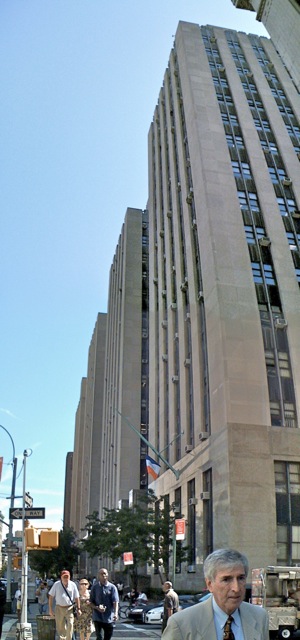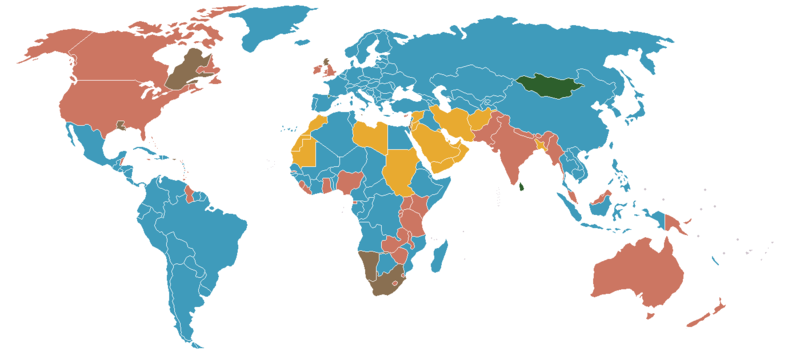Written by Robert Wu for his family and friends
To read all articles, please visit http://www.starferrymusings.com/
———————————————————————–
This is a particularly verbose article. I hope you don’t mind. No cameras were allowed in the court room, so there are no pictures of the proceedings.
Jury Selection Process
I almost served on a jury in a criminal case, and had a close-up glimpse of the American justice system. It was an eye opener.

I arrived the court house and sat in a big room with 300 other prospective jurors. After submitting the paperworks, we waited to be called. Then the clerk announced that a trial needs a jury and proceeded to draw by lottery the names of 100 people. I was one of them and went to a court room.
After we were sworn in, the judge spoke to us behind a lectern set up behind his chair. He was a light hearted gentleman with a sense of humor, but he was stern when even the smallest bit of law was involved. He spent 15 minutes giving us a lecture about the basis and procedures of the American justice system. He emphasized the presumption of innocence, and the prosecutor’s burden of proof beyond the jury’s reasonable doubt; and should the defendant chose not to testify, the law does not allow the jurors to assume he has something to hide and thus is guilty. Many of us knew these basic rules, but the judge’s lecture reinforced them. The judge described this case to be a criminal homicide case where three men who had been drinking killed another man. One of the key witnesses against the current defendant is one of the three.
The clerk drew by lottery 22 names to be the first batch of prospective jurors and they sat in the jury box. Then one by one, the prospective jurors answered 30 questions on a sheet: Country of birth, length of residence in NYC, residence location, family composition, education, employment status of self and spouse, earlier service on a jury, military service, family or friend in law enforcement, family or friend as victims of crimes, current lawsuit, and whether one is able to be fair and carry out the requirements of the law. During each individual’s statement, the judge actively asked for details and clarifications. When a person states he/she or family/friend was a victim of a crime, the judge really dug into the details. Several persons were excused when they expressed strong feelings or stated they could not remain fair in a homicide trial. Whenever one person was excused, the clerk drew by lottery a substitute to fill the vacated seat.
Then the prosecutor addressed the 22 prospective jurors, stating their need to use common sense when presented with facts after an incidence. He asked a few individuals for more details about their background or willingness to determine the fate of another person. One person revealed he lost his job from an investigation, was hostile to authorities, and was subsequently excused. Then the defense lawyer addressed the 22 prospect. He emphasized the burden of the proof is on the prosecution and he does not have to prove his defendant’s innocence. A prospective juror spurted out that he had to prove the defendant innocence, and was also subsequently excused.
Afterwards, all 100 persons vacated the court room for 5 minutes, and when we re-enered the court room, we found 7 out of 22 were chosen to be on the jury. Altogether, 23 out of the 30 selected prospectives (or 75%) were excused by the judge, the prosecutor, or the defense lawyer. Since the required number of jurors for the case was not achieved, more had to be selected.
Then another 22 names were drawn by lottery and the procedure was repeated. I was in this second batch, one of 4 Asians among the 22 prospectives. This was a very high percentage since Asian population in NYC is only about 10%. I was eventually excused and the fact that my brother-in-law was killed in a robbery 35 years ago might be the reason.
My Personal Impression
I would have loved to serve on the jury and observe the whole process of a criminal trial. But from what little I saw in the jury selection process, I was immensely impressed by the rigorous procedure to effect an impartial, open, fair trial in strict accordance to the letter and spirit of the law. I have gained much more confidence in the American justice system.
The judge positioned himself as the referee in the trial to make sure all the legal procedures are correct and the laws are carried out flawlessly. He made it clear that he was impartial in the outcome of the trial, and intended to keep both sides on their toes.
The prosecutor was clear about his strategy in the trial. He intended to introduce the facts of the crime, the outcome, the testimony of a participant, and ask the jury to use common sense in deducing what took place. It appeared he had a strong case against the defendant.
The defense lawyer was emphatic about the prosecutor’s need to prove his client’s guilt beyond any reasonable doubt, and that he did not need to do anything to prove his innocence. To a common person, his case sounded weak and passive. His strategy seemed to cast doubt in the jury’s mind about the credibility of the witness, and try his hardest to raise reasonable doubt. It seems to be a difficult counterintuitive task, and the jury would really have to be conscientiously following the law to clear the defendant.
In many countries, trials are not fair and the defense lawyers are not allowed to vigorously defend his client. Some trials in China today are closed door affairs, the defendants are not allowed to call witnesses or cross exam state witnesses, his lawyer is not allowed to vigorously defend his client, and the sentences are disproportionately harsh. They are basically kangaroo courts. This is particularly so for politically sensitive cases where the defendant is viewed as a trouble maker.
Three Systems of Laws
After I got home, I did some research and confirmed what the judge said and found some additional information. There are three main systems of laws in the world. Besides Common Law practiced by former British colonies, there are the Civil Law system (or Continental European Law) widely practiced in many countries, and the Religious Law system practiced mainly in Islamic countries. The following map shows countries that practice Common Law (medium brown), Civil Law (blue), and Religious Law (light brown):

Source: http://en.wikipedia.org/wiki/List_of_country_legal_systems
The Islamic Law system is based only partially on the Qu’ran, so it is not a divine law. It is based on common practice, past consensus, research, and legal opinions of scholarly luminaries. In a sense, it is similar to the Common Law system.
The Civil Law system is based on laws codified by written constitution, codified law, or statutes. This is the most widespread form of law in the world, and the first code of laws was established in Babylon 4,000 years ago. In this system, legislations make or amend laws and judges interpret and apply laws. Judges’ decisions do not constitute binding precedents as in Common Law system.
The American justice system is an offshoot of the English Common Law system which is particularly protective of the people’s rights. This system grew out of the English people’s struggle for a thousand years against the king (or the State) and consolidated certain limitations on the king’s (or State’s) power over the common people. Habeas corpus, precedence established by earlier court cases, presumption of innocence, trial by a jury of one’s peers, limitation on the punishment for specific crimes, the right to confront one’s accusers, the right to a vigorous defense, the right against self-incrimination, etc. are features of this justice system. The United States adopted some of the Civil Law system by codifying some laws, and relies on the Constitution as the foundation of all US laws.
The laws of the United States are made by the legislators elected by the people, so they are effectively made by the majority opinions of the people. The courts of law have to follow these laws, and if the people feel they are wrong, the people have to change them. Sometimes the Supreme Court would rule certain laws unconstitutional, and those laws would be deleted from the books. Until then, the courts have no option but to follow the law.
The difference between the Civil Law system of China and the Common Law system of Hong Kong is one fundamental gap in the interpretation of Hong Kong’s Basic Law (mini constitution). China sees any right not spelled out in the Basic Law is reserved to the State, and the common Hong Konger sees those rights reserved to the individual. This fundamental difference will test the wisdom of the Chinese leadership and Hong Kong people to bridge the gap and make the “one country, two system” goal a reality.